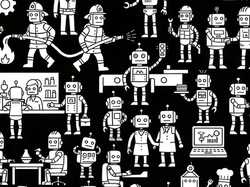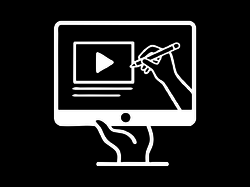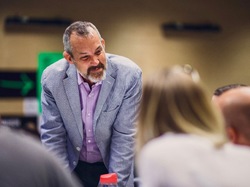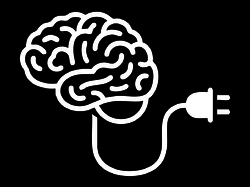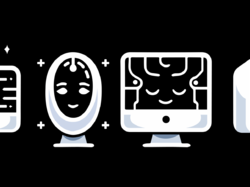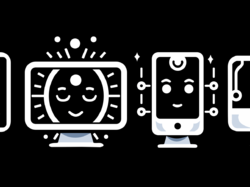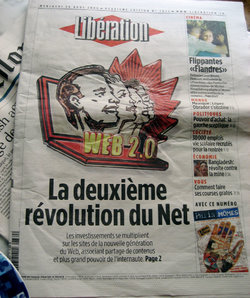
How can it be anything other than a good omen that on the very day I sit down to write my first blog entry, my morning paper devotes its cover and a four-page spread to Web 2.0?
Or, um, maybe it’s just another sign that I’m seriously overdue in starting to share my own thoughts and ideas about the changing landscape of technology, design and culture on the web. Ah well, better late than never.
It’s easy to be cynical about the excitement, hyperbole and especially the money swirling around Web innovations these days. We can all recognize the distinctive scent of hype from the late-nineties bubble, and the Web 2.0 coverage in this morning’s Libération expresses its share of skepticism about the business side of the new internet boom. (I love my adopted country, but what are the French if not skeptical?)
Despite those misgivings, though, there’s a sense even here of buoyant enthusiasm. From the editorial in this morning’s edition:
But once we get past these ironic considerations, there’s no doubt that the internet has changed considerably since its beginnings, especially since the popping of the bubble, which had created doubt about the validity of an economic model on the web.…
It’s a time of total interactivity, of collaborative systems, of community sites, of user-generated content. That’s the real revolution of the internet, which is no longer a simple “pipe” to transmit data, but a new manner of exchange, of sharing, of living in society. … Buckle up, this is only the beginning. French
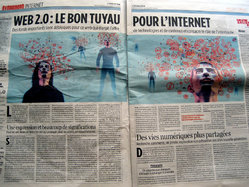
Breathless, to be sure. But man… I’m feeling it, too.
The last two years have seen so many new ideas online, both culturally and technologically. Boosterism and cynicism about business investment in the new web are inevitable, but the money is the least interesting aspect of what’s happening online these days.
Undergirding the current innovations, of course, are technologies that are increasingly web-aware: sites that talk to each other, devices that talk to those sites, aggregations of data that coalesce to form meaning and value.
But even more important are the cultural changes: People are becoming more web-aware. Regular folks are growing comfortable not only with the technology but the very concept of sharing. Personal journals, photos, videos, bookmarks, musical tastes, favorite articles, anticipated events, product reviews, factual knowledge… this sudden availability in bits and bytes of our passions and personalities, interests and idiosyncracies, is the real driver behind the new web.
All of these things are no longer simply published (web 1.0) but aggregated into meaningful collections, all loosely connected. In isolation, they’re of interest only to their creators and immediate friends; but when grouped, sorted, massaged, they sketch out the typography of our collective interests. (Google’s search algorithms are the perfect example: PageRank bases a site’s authority on aggregated linkage, the wisdom of crowds.) Zooming in on this landscape through the tools of the new web uncovers new connections, images, insights.
Every one of us is now publisher, librarian, tastemaker, artist. What a powerfully creative time we find ourselves in.
Every one of us is now publisher, librarian, tastemaker, artist. What a powerfully creative time we find ourselves in. As someone who makes his living building tools that help people participate in this read/write web, I can’t help but be excited by this transformation.
So, at long last, I figure it’s time to start sharing this excitement.
I’m getting my obligatory paean to the new web out of the way here, and future posts will go easier on the two-point-oh truisms. My goal is to explore issues of online design, experience and culture – not only as I find them on the web but as I discover their connections and inspiration in my everyday life (or lack thereof). And of course, cat pictures.
Not sure how this thing will turn out, but we’ll explore it together. Meantime, it’s like Libération says: “Buckle up, this is only the beginning…”
Mais use fois passé ces considérations ironiques, il faut bien admettre que l'Internet s'est considérablement transformé depuis ses débuts, surtout depuis l'éclatement de la «bulle» qui avait fait douter de la validité d'un modèle économique sur le Web.…
L'heure est à l'interactivité totale, aux systèmes collaboratifs, aux sites communautaires, aux contenus générés par les utilisateurs. C'est la véritable révolution de l'Internet, qui n'est pas qu'un simple «tuyau» pour faciliter la transmission de données, mais aussi une nouvelle manière d'échanger, de partager, de vivre en société.… Accrochez-vous, cela ne fait que commencer. [Go back]
